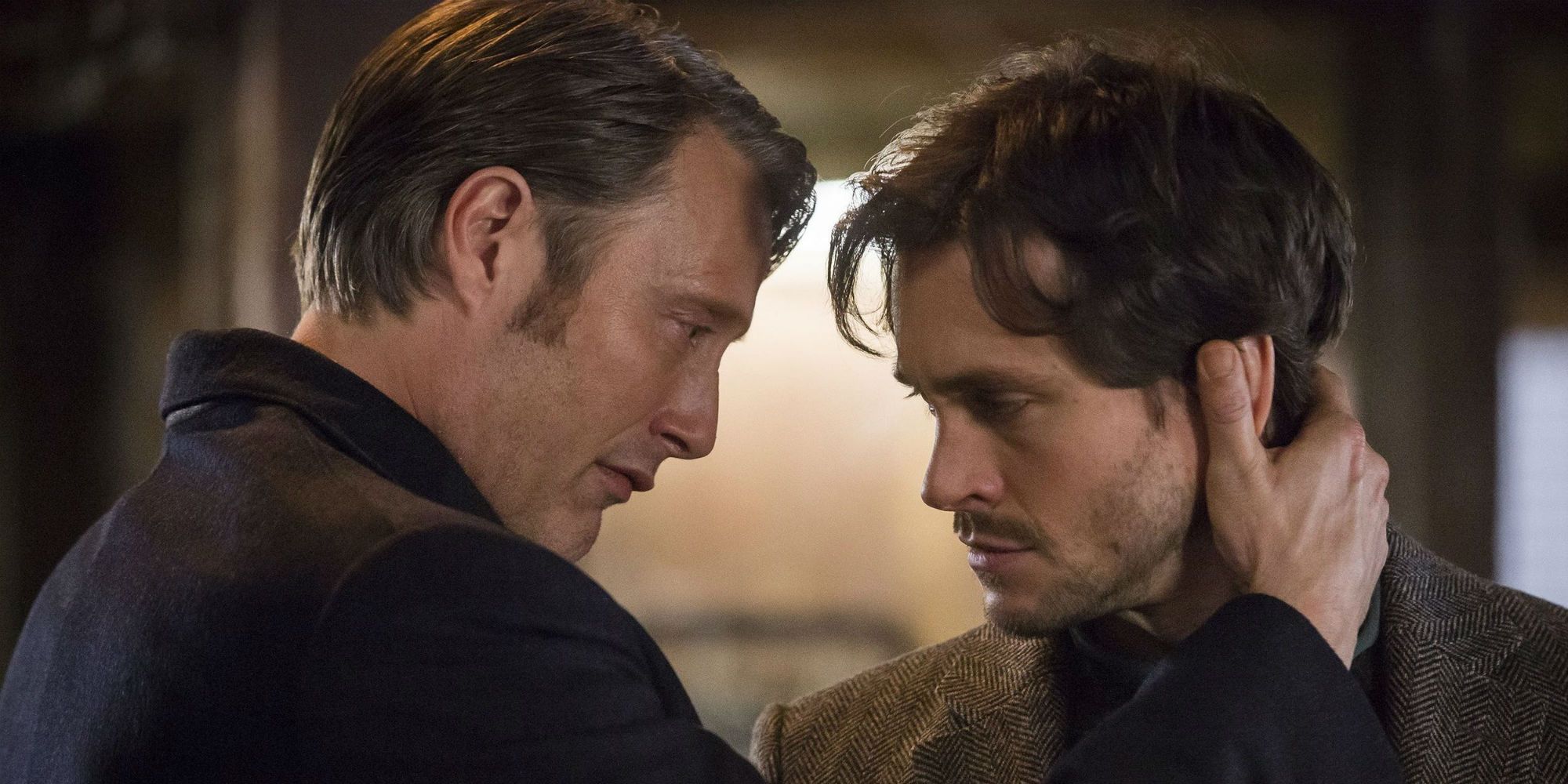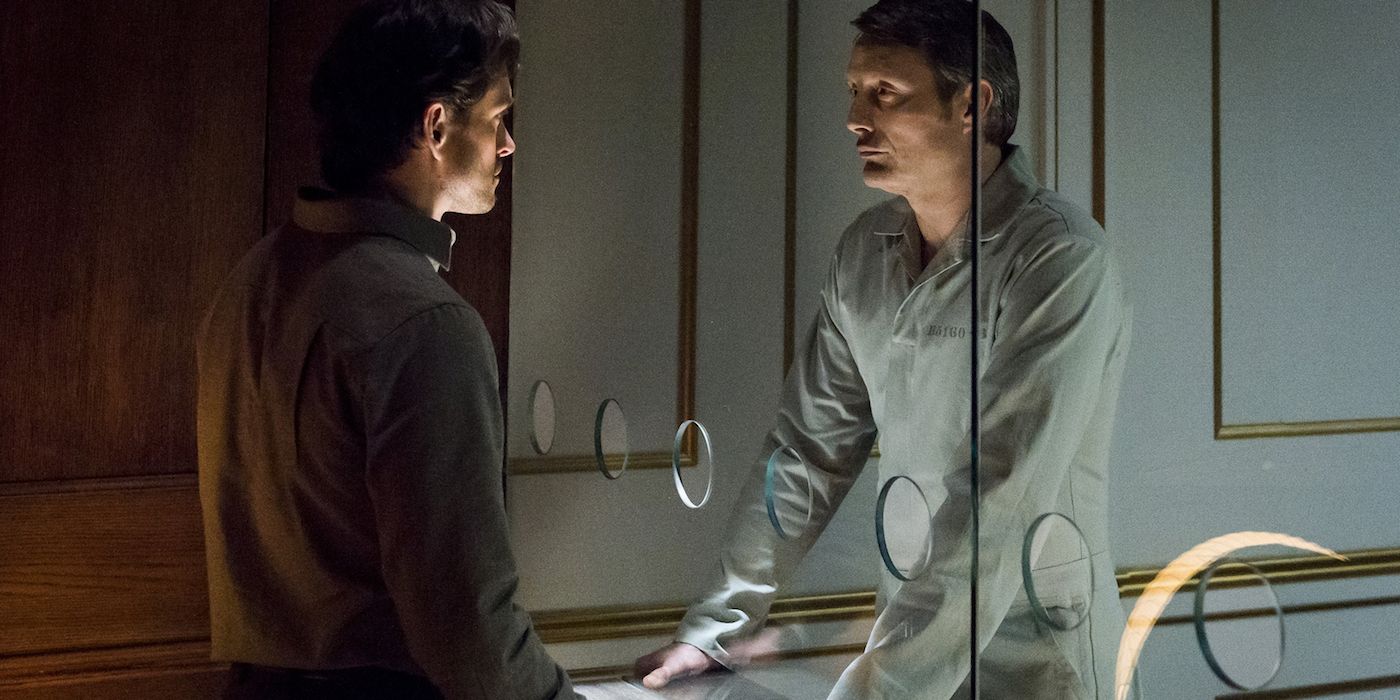Hannibal has gone down in history as one of the most iconic pieces of queer horror—but it wasn't initially intended to be that way. In Comic-Con@Home's "Horror is Queer" panel, creator Bryan Fuller revealed that fans of the show, known as "Fannibals", influenced him to take the show in that direction. With their influence and ongoing investment in the characters of Will Graham and Hannibal Lecter, Hannibal became more widely regarded as queer horror.
Hannibal focuses on the relationship between prolific serial killer Hannibal Lecter and FBI Special Agent Will Graham, who has the unique ability to empathize with serial killers and psychopaths. Hannibal is initially drawn to Will as he thinks Will's superb ability to analyze crime scenes would be useful to him, should he convince the FBI agent to join him in committing murders. But near the end of the show's three-season run, that relationship subtly takes a turn from fascination to something with romantic undertones. There's been speculation that Hannibal could return for season 4 in the near future, and Fuller has been open about his interest in pursuing a romantic relationship between the two men.
How did a show that, as Fuller said, started off as two straight men falling in love with each other become one that is unabashedly queer? It was thanks to some help from Fannibals and the horror genre itself. The transition demonstrates the imaginative and surprisingly welcoming aspect of the horror genre.
Hannibal's Transition to Queer Horror
Fuller's dedication to his fans turned Hannibal into the show it became in the long run. As Fuller stated in the Comic-Con panel, the Fannibals tapped into a queer aspect of Will and Hannibal's relationship that he was previously oblivious to. Once fans brought that to Fuller's attention, he knew it was the right way to take Hannibal.
"It became queer not solely out of listening to the Fannibal community and their projections on the material, but also reading into the authenticity of the relationship between these two men, and realizing that there was a love relationship."
Fans of the show saw something they related to in Hannibal and latched onto it. Panelists agreed that queer stories are generally making their way into the mainstream culture more these days, but there's generally something about horror that appeals to traditionally marginalized groups. Visibility, particularly amongst queer characters and openly queer actors has become more prominent in recent years, but before it was more commonplace, members of the LGBTQ community had to try to find representation where it didn't initially exist. This was where "subtext" came into play; Hannibal and Will's relationship lives somewhere between subtext and canon, but fans rallied behind them all the same. Horror has been queer for decades due to the genre's natural inclination to champion the "outsider" in society.
Horror films and TV shows tend to live outside of what's typically considered to be acceptable in society—that's something LGBT people are very familiar with. Once Fuller's eyes were open to the clear queer tone of Hannibal and its potential, he leaned into the silver lining of being an outlier of society. In the Comic-Con panel, he praises the wonderful aspect of being different. With that mindset, he turned Hannibal into something horror fans had never seen on TV before. Fuller has strongly hinted that should the show be resurrected for Hannibal season 4, Will and Hannibal could start a romantic relationship, coming full circle in honoring the fans' vision for Hannibal.


